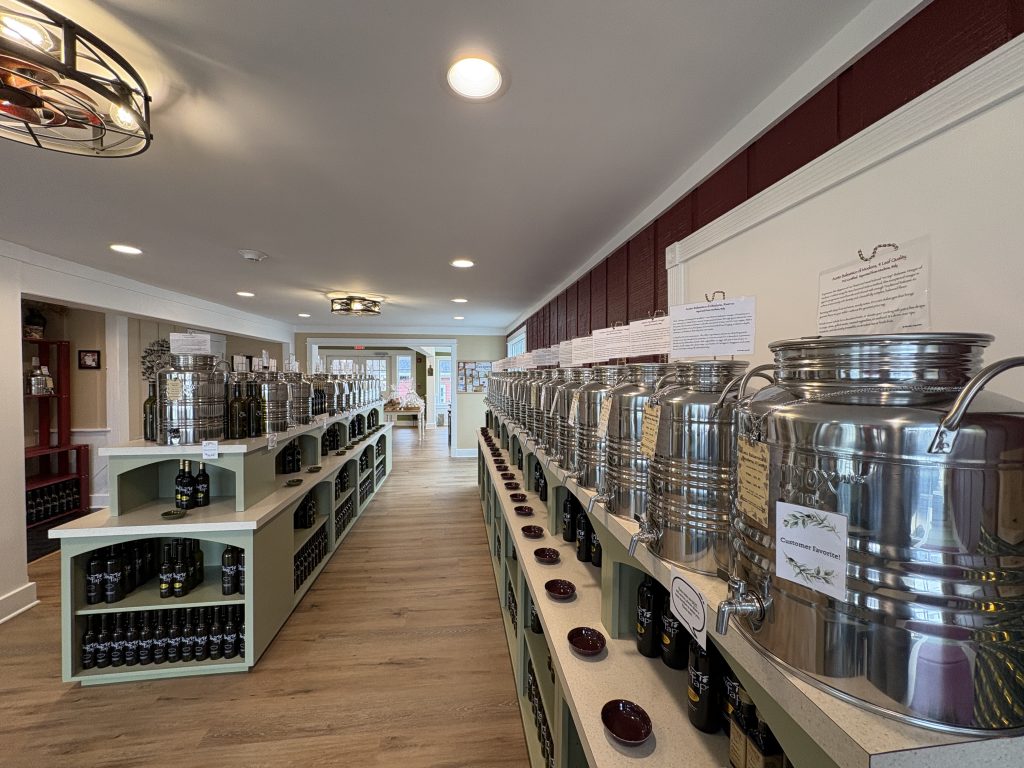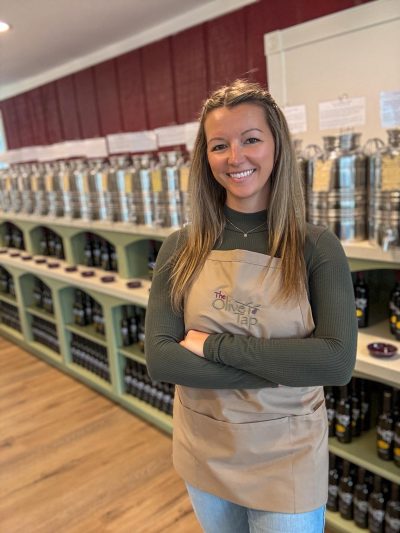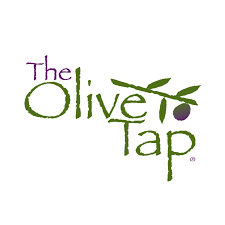About Us
Welcome to
The Olive Tap Long Grove
Welcome to The Olive Tap Long Grove, Long Grove’s destination for premium olive oils and balsamic vinegars!
Here, tasting is an experience. We invite you to explore and sample as many oils and vinegars as you’d like—from bright, fresh extra virgin olive oils to rich, velvety balsamics. Every product we carry is tested in small batches for quality, ensuring you enjoy nothing but the best!


Taste the Difference, Experience the Quality

This store is more than a business – it’s a piece of my life story. I grew up alongside the original Olive Tap in Long Grove, spending countless afternoons with my best friend while her parents poured their hearts into creating a place where people could discover and share the joy of olive oils and balsamic vinegars.
I never imagined that the little shop I adored would one day become such a meaningful part of my own journey. During college, I worked here, learning not just about the flavors, but about the care, tradition, and passion behind every bottle.
When life brought me to Colorado, my connection to The Olive Tap only deepened. I had the opportunity to work at both Colorado locations, gaining even more appreciation for the craft. No matter where I lived, the store always felt like home.
So, when the chance came to bring this beloved shop back to Long Grove, I knew it was more than just opening a business – it was about continuing a legacy of family, friendship, and community.
Now, as I reopen the doors in historic downtown Long Grove, it truly feels like coming full circle. This store is woven into my childhood memories, and it’s an honor to share that same warmth, tradition, and joy with you and your family.
-Kelly Petrocelli, Owner of The Olive Tap Long Grove
What We Believe
We believe food should be an experience – something to savor, share, and celebrate. That’s why we focus on premium quality, small-batch oils and vinegars that transform everyday cooking into something extraordinary.
We also believe in the connection between food and health. Olive oil has been treasured for centuries, not only for its incredible flavor but also for its natural health benefits. By choosing pure, fresh, and carefully crafted oils, we’re helping you bring both wellness and joy to your table.
More Than a Store
We’re more than just a place to shop. We’re a place to discover new flavors, ask questions, and connect. Whether you’re a seasoned home chef or simply curious about trying something new, we’re here to guide you through tastings, pairings, and ideas to inspire your kitchen.
Come taste, explore, and discover your favorites—we can’t wait to welcome you back to Long Grove’s olive oil and balsamic vinegar emporium.
We’re so excited to be back in Long Grove!
Be sure to check out our local Historic Downtown Long Grove Community Events to join us for some fun activities this year!

Frequently Asked Questions
There are many health benefits to balsamic vinegar. Balsamic vinegar, regardless of the source or flavor, retains most of the nutrients present in the parent grapes and is comprised of essential nutrients like iron, calcium, potassium, manganese, phosphorus and magnesium in adequate amounts. Not only does this popular condiment decelerate the aging process in cells, it also can control diabetes, assist in digestion, and is a natural pain reliever. Thus, incorporating balsamic vinegar in the daily diet can benefit your overall health.
Many recent studies have shown a positive impact of olive oil on the human body that can exceptionally maximize the healthy components of your meals and contribute to a sustainable, healthy diet.
In the United States, animal fats, hydrogenated fats, seed oils, vegetable oils, and corn oils unfortunately dominate the national average diet. Collegiate studies suggest that these types of fats can lead to higher rates of heart disease, arthrosclerosis, diabetes, colon cancer, asthma, and so much more. However, studies have also shown that people who consume olive oil on a regular basis, especially in place of those other not-so-great-fats, have much lower rates of these health ailments. This is due to the abundance of polyphenols in all natural extra virgin olive oils that are responsible for its well-known cardiovascular benefits. Polyphenols, which have anti-inflammatory, antioxidant, and anticoagulant effects, also have preventative effects to help fight against colon cancer and osteoporosis. If you can incorporate more olive oil into your diet, we would highly recommend it!
The Olive Tap was founded by Rick Petrocelly in Long Grove, Illinois, in 2006, establishing itself as a premier destination for tasting high-quality olive oils and balsamic vinegars. As the company’s flagship location, the Long Grove store has a long history in the historic downtown area, returning to the village with a new location at 302 Old McHenry Road in February 2026. We are officially coming back to our original stomping grounds and couldn’t be more excited!
The Olive Tap has 6 total store locations across the United States spanning from Colorado to Ohio to Pennsylvania. The Olive Tap Long Grove is excited to be the newest location added to the Olive Tap Family and bring back everyone’s favorite gourmet oil and vinegar emporium to it’s original city!
We are thrilled to expand our inventory to include other delicious organic items like dips, spices, olives, marinades, sauces, and so much more! Come visit us often to see what new products we have on our shelves to be the first to taste the best the Olive Tap has to offer.
The Olive Tap Long Grove is located at 302 Old McHenry Road which is on the corner of Old McHenry Road and Robert Parker Coffin Road. We are right next door to The Welcome Center of Historical Downtown Long Grove and directly across Old McHenry Road from Royal Melbourne Golf Shop. Come visit us today!
Yes, we offer in-store product tastings daily so you can experience any flavor of oil or vinegar before purchasing a bottle. Our shops are known as “Tasting Emporiums” so our customers can try out whichever product they’d like when they come to visit us.
Our in-store business hours are Monday-Sunday 10:00 AM – 5:30 PM CST, so we’re open 7 days a week! You can also place an order at any time on our website using our Online Order Form!
The information provided on our website is for general informational and educational purposes only and does not constitute professional medical advice, diagnosis, or treatment. I am not a doctor or healthcare professional. Always seek the advice of your physician or qualified health provider with any questions you may have regarding a medical condition. Never disregard professional medical advice or delay in seeking it because of something you have read here. Reliance on any information provided is solely at your own risk
